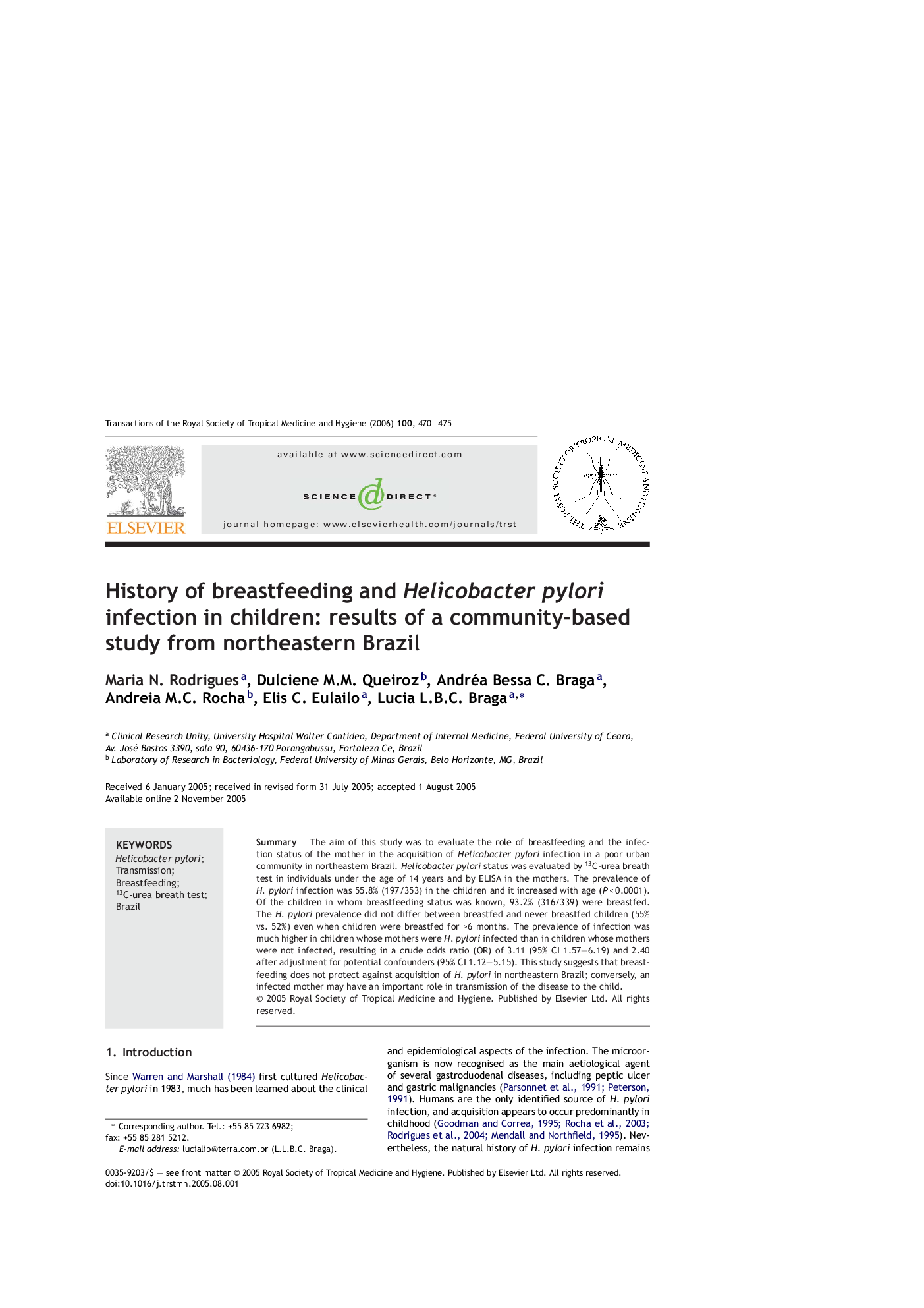| Article ID | Journal | Published Year | Pages | File Type |
|---|---|---|---|---|
| 3421276 | Transactions of the Royal Society of Tropical Medicine and Hygiene | 2006 | 6 Pages |
Abstract
The aim of this study was to evaluate the role of breastfeeding and the infection status of the mother in the acquisition of Helicobacter pylori infection in a poor urban community in northeastern Brazil. Helicobacter pylori status was evaluated by 13C-urea breath test in individuals under the age of 14 years and by ELISA in the mothers. The prevalence of H. pylori infection was 55.8% (197/353) in the children and it increased with age (PÂ <Â 0.0001). Of the children in whom breastfeeding status was known, 93.2% (316/339) were breastfed. The H. pylori prevalence did not differ between breastfed and never breastfed children (55% vs. 52%) even when children were breastfed for >6 months. The prevalence of infection was much higher in children whose mothers were H. pylori infected than in children whose mothers were not infected, resulting in a crude odds ratio (OR) of 3.11 (95% CI 1.57-6.19) and 2.40 after adjustment for potential confounders (95% CI 1.12-5.15). This study suggests that breastfeeding does not protect against acquisition of H. pylori in northeastern Brazil; conversely, an infected mother may have an important role in transmission of the disease to the child.
Related Topics
Life Sciences
Immunology and Microbiology
Applied Microbiology and Biotechnology
Authors
Maria N. Rodrigues, Dulciene M.M. Queiroz, Andréa Bessa C. Braga, Andreia M.C. Rocha, Elis C. Eulailo, Lucia L.B.C. Braga,
